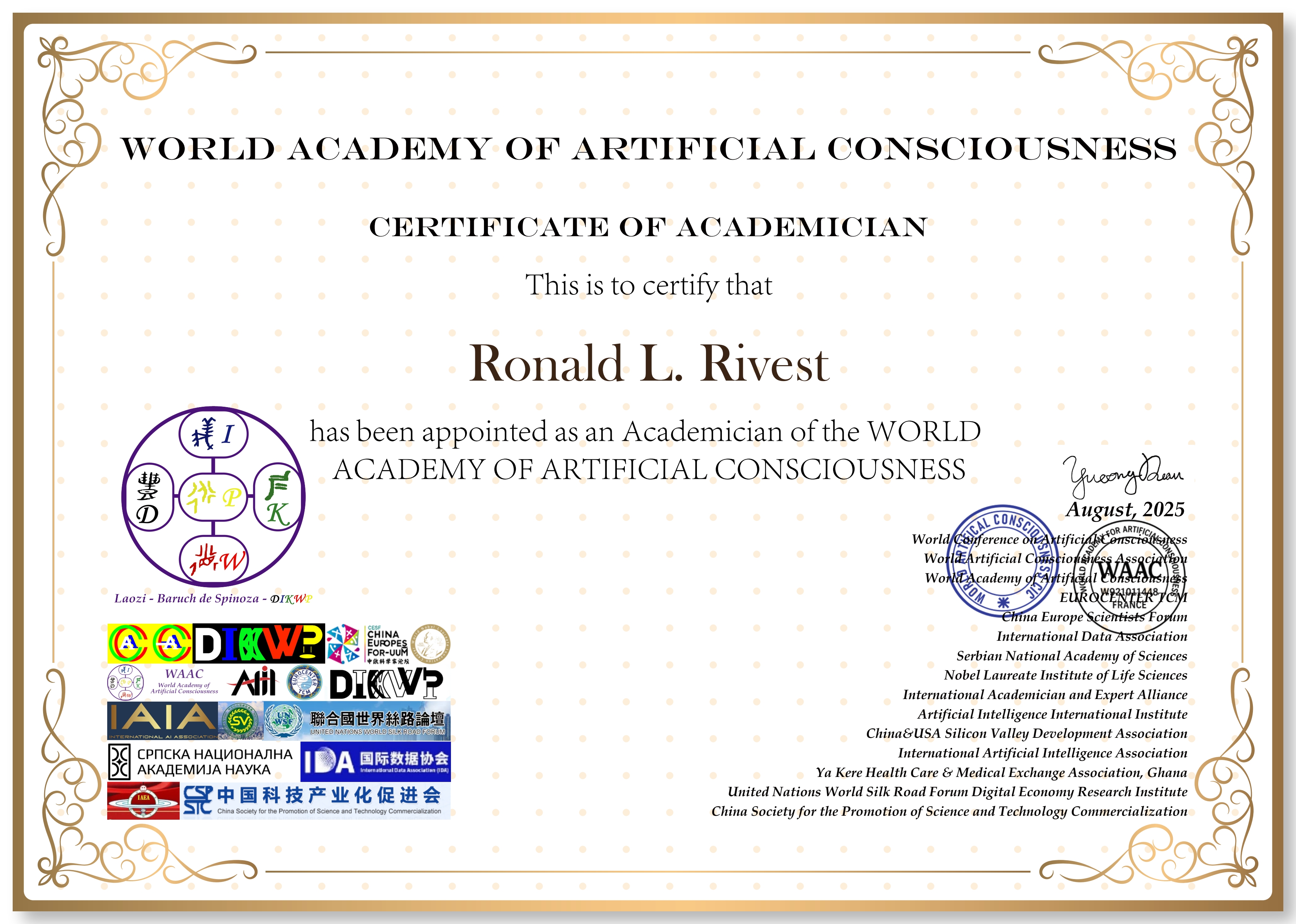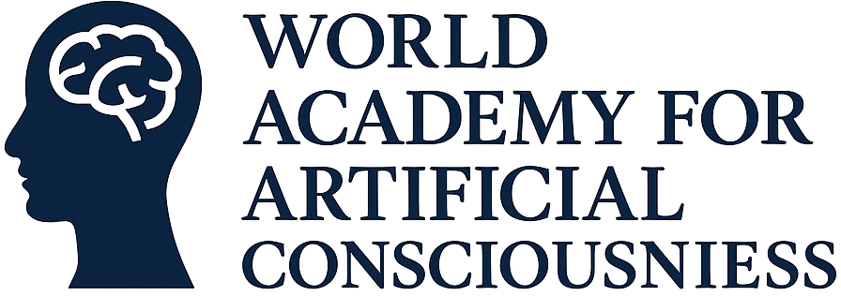
We are pleased to announce that Ronald L. Rivest, Institute Professor at MIT’s Computer Science and Artificial Intelligence Laboratory (CSAIL), has been elected an Academician of WAAC in recognition of his systematic contributions to public-key cryptography, symmetric cryptography, cryptographic hashing, and election security.

Over many years, Professor Rivest has advanced a program centered on “verifiable security,” building an evidence chain from foundational cryptography to socio-technical systems: In Communications of the ACM (1978), he published the original RSA paper, establishing the practical paradigm of modern public-key cryptography; in IETF RFC 1321 (1992), he released the MD5 algorithm, helping drive the widespread use of digital signatures and integrity checking; in 1994/1995, he proposed the parameterizable, implementation-simple RC5 block cipher, demonstrating the engineering feasibility of high-performance symmetric encryption; in a USENIX EVT 2007 paper, he introduced the ThreeBallot/VAV/Twin family of verifiable voting protocols, exploring publicly auditable elections without trusted specialized devices; and the RSA patent, co-invented with collaborators, laid key legal and engineering foundations for secure communications and e-commerce infrastructure.
- Global Collaboration and Academic Ecosystem
Academicians of the World Academy for Artificial Consciousness hail from institutions such as Harvard University, the Massachusetts Institute of Technology, the University of Cambridge, the University of California, the French Academy of Sciences, the University of Padua, the University of Queensland, Columbia University, and the University of Exeter. Honorary Academicians come from a wide range of countries and regions, including the United States, the United Kingdom, France, Germany, Italy, Sweden, Canada, Australia, Spain, and China. In addition, leading scientists from prominent research institutes and technology companies—such as Google, the Allen Institute for Brain Science, and ZEEKR—also participate.
- About WAAC

The World Academy for Artificial Consciousness (https://www.waac.ac/) is a global academic institution established in Paris in 2025. Its mission is to advance frontier research and international collaboration in artificial consciousness through the integration of science, technology, and philosophy. The Academy publishes open research, policy recommendations, evaluation standards, and more. The current President is Academician Yucong Duan, and the Secretary-General is Dr. Yingbo Li. The Honorary Academician List: On May 3, 2025, WAAC released its first batch of Top 100 Honorary Academicians, recognizing scholars who have made foundational or leading contributions to the theory of artificial consciousness.
